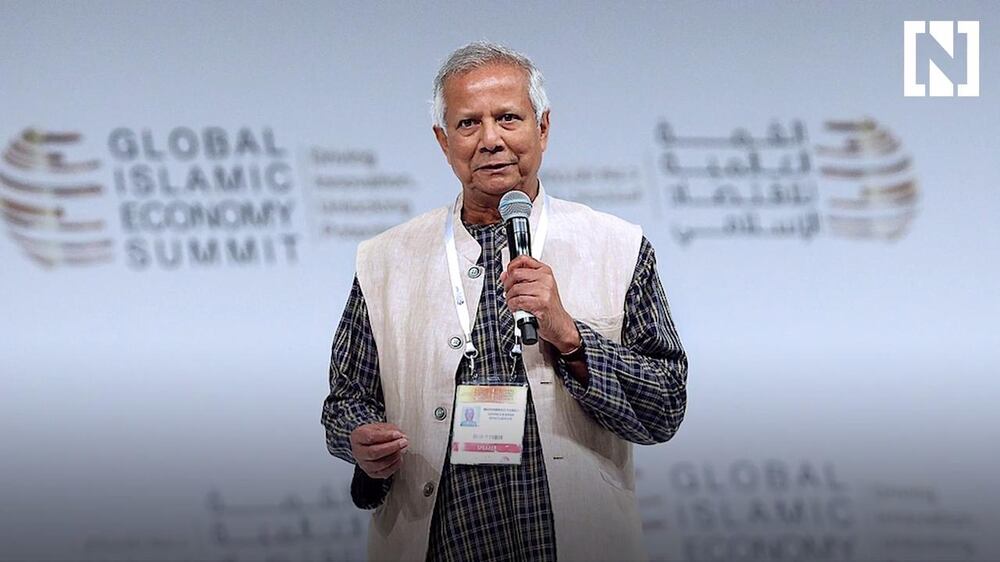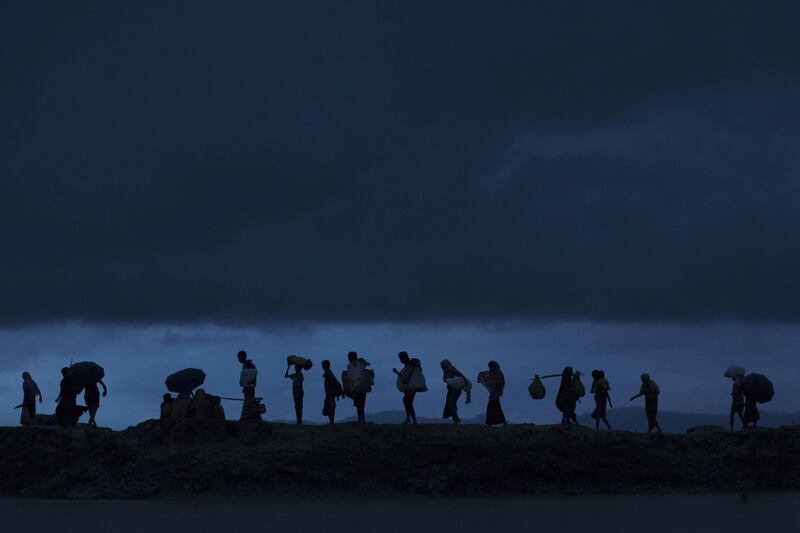Rohingya militants whose attacks sparked an army crackdown in Myanmar that forced nearly 300,000 Rohingya to flee to Bangladesh, on Sunday declared a unilateral ceasefire to allow aid to reach the increasingly desperate fugitives.
"The Arakan Rohingya Salvation Army (Arsa) hereby declares a temporary cessation of offensive military operations," the group said on its official Twitter account.
It urged "all humanitarian actors" to resume aid delivery to "all victims of humanitarian crisis irrespective of ethnic or religious background" during the one-month ceasefire period until October 9.
Arsa called on Myanmar to "reciprocate this humanitarian pause" in fighting.
There was no immediate response from Myanmar's military.
Rohingya refugees say army operations against Arsa led to mass killings and the burning of hundreds of villages, sending them across the border.
India on Sunday called for an immediate end to the violence, urging the situation "be handled with restraint and maturity".
"It is imperative that violence is ended and normalcy in the state restored expeditiously," the foreign ministry said, and added it was concerned about the outflow of refugees.
The call came days after Indian prime minister Narendra Modi made a state visit to Myanmar during which he condemned the attacks by Rohingya militants on Myanmar troops but did not comment on the violence against the Rohingya and their mass exodus.
_________________________________
Read more:
[ Rohingya relive village massacre in Myanmar ]
[ Violence has driven away nearly half of Myanmar's Muslims in less than a year ]
[ Bangladesh hospital overflows with persecuted Rohingya - video ]
_______________________________________
The United Nations says 294,000 Rohingya have entered Bangladesh since the militants' attacks on Myanmar security forces in Rakhine on August 25 sparked a major military backlash.
Tens of thousands more are believed to be inside Rakhine without shelter, food or water.
Three Rohingya are reported to have been killed by a mine near the border, allegedly laid by Myanmar security forces to stop the fugitives returning.
Mainly Buddhist Myanmar does not recognise the Muslim Rohingya community as citizens, labelling them "Bengalis" — illegal immigrants from Bangladesh.
About 27,000 Buddhists as well as Hindus have also fled violence that has gripped the northern part of Rakhine.
Muhammad Yunus speaks out on the Rohingya

The Red Cross in Bangladesh welcomed the militants' ceasefire pledge as aid agencies struggle to meet the needs of an "overwhelming crisis", battling monsoon rains to deliver relief to people who have fled with few belongings.
"How can you handle such a big influx of people? They want shelter, they want a safe place," said Misada Saif, a Red Cross official in Bangladesh.
International aid programmes in Rakhine have been severely curtailed by the fighting in the state, but Myanmar authorities said on Saturday that they would set up three relief camps in Rohingya-majority areas.
With thousands more refugees arriving in Bangladesh each day, the UN has appealed for urgent donations of US$77 million (Dh282m).
Bangladesh already hosts around 400,000 Rohingya from previous crises, including a previous military crackdown in Rakhine last October that were also triggered by militant attacks.





